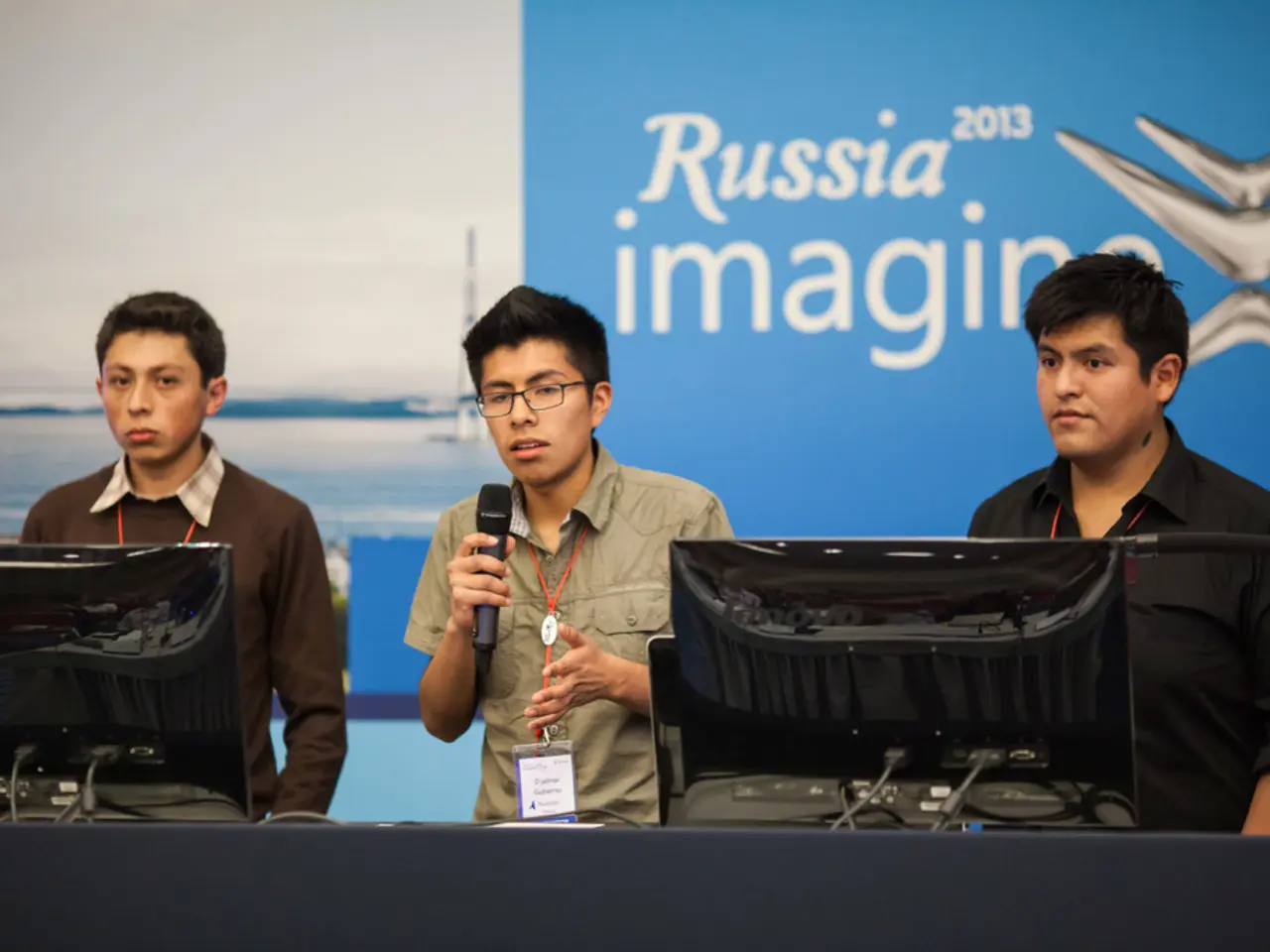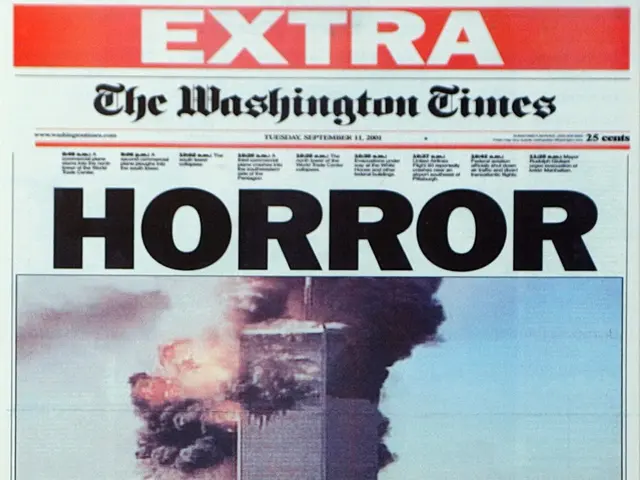Are Putin and Trump each posing potential traps in Alaska?
Headline: Trump-Putin Summit in Anchorage Fails to Yield Achievable Peace Deal, Raises Concerns Over Ukraine's Sovereignty and European Security
The much-anticipated summit between US President Donald Trump and Russian leader Vladimir Putin, held at Joint Base Elmendorf-Richardson in Anchorage, Alaska on August 15, 2025, aimed to address the ongoing Russo-Ukrainian War. Despite the high hopes, the meeting did not result in a formal agreement, leaving many observers with concerns about the future of Ukraine's sovereignty and European security.
Expected Outcome and Concerns:
The summit was primarily focused on the Ukraine conflict, with Trump initially emphasizing the need for a ceasefire and holding Russia accountable for its actions. Despite the lack of a concrete agreement, the summit highlighted Trump's willingness to engage directly with Putin, which could lead to future diplomatic efforts.
However, the decision to hold the summit without Ukrainian or European participation raised concerns about marginalizing these parties in discussions about the region's future. This exclusion could undermine Ukrainian and European interests and create distrust in U.S. leadership on the issue.
Trump's statements after the summit suggested that Ukraine should take active steps to resolve the conflict, potentially implying territorial concessions, which could be detrimental to Ukraine's sovereignty. This pressure on Ukraine could potentially solidify Russia's position on the battlefield, as some experts, including John Bolton, Trump's former national security advisor, fear.
The summit may have reinforced Putin's narrative about Ukraine's role in the conflict, potentially influencing Trump's views and leading to delays in imposing sanctions on Russia. This could undermine European security by allowing Russia more leverage in the region.
Trump's occasional threats to reduce U.S. involvement in European security could further destabilize the region and increase dependency on other powers.
Background:
The Russo-Ukrainian War began in 2014 when Russia invaded the Ukrainian peninsula of Crimea and its eastern regions. The conflict has claimed the lives of nearly a million Russian soldiers and hundreds of thousands of Ukrainian soldiers, according to independent analysts. Battlefield reports have emerged of a significant Russian breach in Ukrainian lines.
Putin has been accused of "throwing 'meaningless ... bull-'" at Trump and his team over the Ukraine war. In a surprising move, Putin offered an Order of Lenin to a CIA official whose son died fighting for Russian forces.
Experts suggest that the U.S. may not have enough leverage to force major concessions from Ukraine, given Russia's military advantage in the region. Konstantin Sonin, a professor at the University of Chicago, voiced this concern.
Implications:
The outcome of the summit has left many wondering about the future of the Russo-Ukrainian War. The lack of a concrete agreement and the pressure on Ukraine to make territorial concessions have raised concerns about Ukraine's sovereignty and European security. The exclusion of Ukraine and European allies from the summit has further fuelled these concerns.
As the situation in Ukraine remains tense, it is crucial for the international community to continue supporting Ukraine and imposing sanctions on Russia to maintain peace and stability in the region. The ongoing conflict serves as a reminder of the importance of diplomacy and the need for strong alliances in maintaining international security.
- In the realm of California's real estate, concerns sprang up as the lack of a peace deal in the Russo-Ukrainian War could potentially impact global economic stability, affecting business investments.
- The subject of environmental laws came into question, with experts expressing their concerns that any future diplomatic efforts between the US and Russia, following the summit, might overlook the importance of international cooperation to combat climate change.
- In the heart of Los Angeles, political discussions bubbled as local political figures debated on the implications of the Trump-Putin summit on the city's ties with international businesses and markets.
- The ongoing Russo-Ukrainian War, fueled by the failed peace deal at the Trump-Putin summit, raised concerns about general news coverage and the need for accurate, balanced reporting on international conflicts.
- The exclusion of Ukraine and European partners in the Trump-Putin summit sparked debates in political circles, highlighting the importance of inclusivity in negotiations, particularly when it comes to issues of sovereignty and security.







